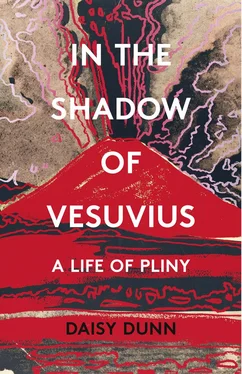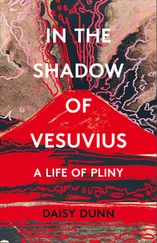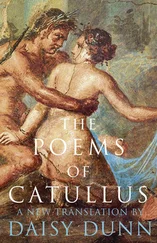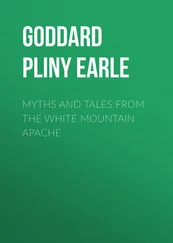Pliny anticipated that Suetonius might still struggle and told him that he would attempt to delay his case. ‘It’s difficult, but I’ll try,’ he promised, for as Homer said, ‘a dream is from Zeus.’ 62The line was a wry comment on the difficulty of interpreting one’s own dreams, for as he knew only too well, even dreams from Zeus could be deceptive. In the Iliad, Agamemnon, commander of the Greek army, was famously deceived into thinking that he could take Troy at once after the King of Pylos appeared to speak to him in a dream. 63On waking he decided first to test his men’s resolve by encouraging them to abandon the war and return home, since they had no hope of sacking Troy. Far from rejecting his plan and rallying to fight all the more defiantly, his soldiers shamefully got up to leave. It was up to Odysseus to talk them into staying. There was no chance of concluding the war after nine years in a single day. The dream was false. Vita vigilia est.
FOUR
Solitary as an Oyster
‘You are fettered,’ said Scrooge, trembling. ‘Tell me why?’
‘I wear the chain I forged in life,’ replied the Ghost. ‘I made it link by link, and yard by yard; I girded it on of my own free will, and of my own free will I wore it. Is its pattern strange to you ?’
Charles Dickens, A Christmas Carol , 1843, Stave I
The festival of the Saturnalia was for most Romans, though not for Pliny, ‘the very best of days’. 1A week of wine and banquets, presents and practical jokes, it took place around the solstice each December and honoured Saturn, the Roman god of time and the seasons. Work ceased, togas were hung up, festive robes and caps put on, bottles opened, meat sliced, dice thrown, and roles reversed. 2Pliny had a couple of choices as to where to spend the holiday. He could stay in Rome and look at flamingos from the Nile, pheasants from Georgia, guinea fowl from Numidia (all the birds his uncle had discouraged Romans from travelling the world to see), while feasting – in the presence of dwarves and female gladiators – on nuts from Pontus, dates from Palestine, plums from Damascus, figs from Ibiza, and jars upon jars of wine. 3Or he could travel thirty kilometres south-west to the coast of the Tyrrhenian Sea and recline alone in a room that ‘not the voices of the younger slaves, nor the murmur of the sea, nor thunder nor lightning, nor light of day could reach, provided the windows were not open’. 4Pliny chose the latter.
There was something of Scrooge to Pliny come midwinter, ‘secret, and self-contained, and solitary as an oyster’. 5The arrival of the Saturnalia each year was his prompt to retreat to his ‘Laurentine’ villa and its most isolated rooms. Lying just south of Ostia, on Italy’s west coast, Laurentum was close enough to Rome that he could retire there for the season ‘when the day was done’. 6Built in the early first century on layers of oyster shells – sand, mortar, oyster shells, mortar again, pottery sherds, more crushed oyster shells – the village was delightful in its rusticity. 7Since the roads were liable to become too sandy to drive a carriage over, Pliny thought it best to complete the final leg of the journey from Rome by horse. On horseback one would gain sufficient height to see the crowns of the trees which grew in the woods inland. Emperor Tiberius had kept an elephant menagerie and guild of gamekeepers in woods around here, while an orator named Hortensius had created his own game preserve, to which he would invite friends for dinner and watch as his musician, Orpheus, summoned forth a parade of deer and wild boar to provide ‘no less distinguished a spectacle … than when the hunts of the aediles [junior politicians] take place in the Circus Maximus without African beasts’. 8
Elephants had always struck Pliny’s uncle as closest to men in sensibility. Though less faithful than dogs and horses, they were intelligent, obedient and fired by ‘a desire for love and glory’. 9It was Pliny the Elder who first recorded their fear of mice. fn1He had drawn on the research of Aristotle, who had undertaken an investigation into ‘the nature of animals’ for his pupil Alexander the Great, in the fourth century BC. 10Using information gathered from thousands of animal keepers and hunters across Greece and Asia, Aristotle had produced a comprehensive study of animals in almost fifty volumes, which Pliny the Elder commended to his readers. Aristotle described the elephant as the most well tempered and easily tamed of species, a view borne out in Pliny the Elder’s description of Romans teaching the beasts to walk tightropes, memorise the Greek alphabet, and engage in gladiatorial contests in the circus. 11Pliny, for his part, rarely found these entertainments anything other than disappointing. There was an occasion when one of his friends put on a show of exotic beasts in the amphitheatre at Verona. But owing to bad weather, the African panthers he was promised never arrived.
Victor Emmanuel II, the first king of unified Italy, is credited with rediscovering Pliny’s village in 1874 when Laurentum had again become a royal hunting preserve. 12While in Pliny’s time the villa-lined seafront was said to have borne ‘the appearance of many cities’, the village itself was revealed to be fairly compact and unimposing. More recent excavations have exposed part of the town plan as it developed. Beyond the houses was a road that led to Rome, some public baths (Pliny said there were three), and a forum so small that a visitor might easily have missed it. 13A few temples, a colonnade of shops, a meeting house, a restaurant with a winsome view over a fountain and public sculptures – Laurentum ‘met one’s basic needs’. Land near Pliny’s villa provided pasture for horses, cattle, and sheep, so there must have been milk and cheese. And though the sea off Laurentum was not ‘abundant in good fish’, it did have sole and prawns. For more extravagant things Pliny could always go to Ostia but, for all it might have seemed otherwise, it was never for extravagance that he came here.
Laurentum was where he wrote the most. 14He called it his Moυσεîoν after the ‘Seat of the Muses’ which contained the library of ancient Alexandria, but it was distinctly Italian. 15The Romans traced their origins to the landscapes of Laurentum. In Virgil’s epic, Aeneas is said to meet his bride Lavinia here. The place was named after the laurel tree, sacred to the poetry god Apollo, that grew in the courtyard of Lavinia’s father’s palace. 16Laurentum was for Pliny, too, a place of beginnings. He was descended from the Oufentina, a former tribe established in 318 BC and named after the river Oufens which flowed through it. 17If he could not write in a villa built upon the laurel-rich landscapes of the Romans’ ancestors (not to mention his own), then he might as well have given up.
The library of his Moυσεîoν was located in the winter quarters of his villa near some bedrooms and a dining room that was angled in such a way as to retain the sun’s heat, but keep out the sound of all winds ‘except those which bring in the clouds’. 18During the Saturnalia, however, not even these rooms were quiet enough. Leaving his slaves to send their ‘festive cheer’ echoing through the halls, Pliny retired instead to the living room, snug, bedroom with folding doors, and darkened cell which together comprised a sort of Saturnalian suite. It was this wing of his villa – not the D-shaped portico, nor the covered courtyard, nor the dining room with a view through bay windows ‘as if over three seas’, nor the ball court, nor the larger bedrooms, nor the walkway that ‘stretched almost to the size of a public monument’, nor the baths, nor the two towers with the dining rooms, bedroom and granary they contained – that he liked best. 19He had commissioned the suite himself and it was his ‘true love’.
Читать дальше












